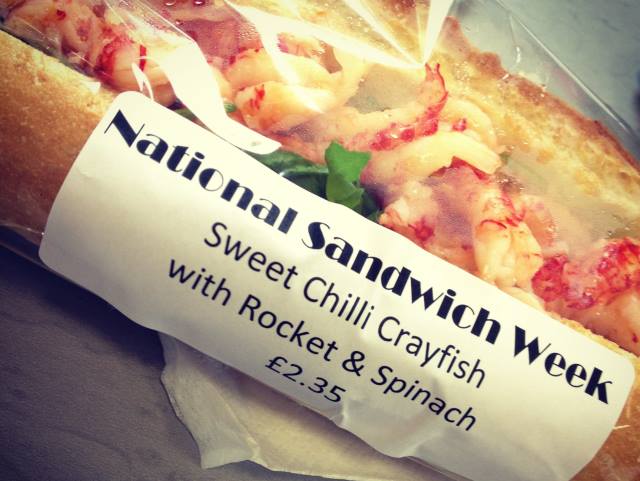I’ve got a busy job.
It involves a lot of meetings, a lot of running around doing things, sorting things out, making – and sometimes stopping – things from happening.
Lately, work has stretched at the seams, slowly drifting into cracks it never reached before … those hours early in the very early morning when the lights flicker on for me as I stride alone, wearily, down the office, breaking the peace and waking a frozen PC, with nothing but coffee and silence for company. It’s attacked other parts of the day, too … that time in the middle formerly called ‘lunch’ is a recent casualty.
Lunch, or whatever you call that meal (often ‘dinner’ round here) has all but gone these days, reduced to simply eating something while working, instead of anything that could be described as a meal. Soup, a sandwich, or if I’m organised, the remains of last night’s dinner, most often at my desk, occasionally hunched in a corridor between meetings, barely ever in the actual restaurant. Sometimes, there’s nothing at all.
This isn’t good. Not good at all.
There’ are clear benefits to taking a proper break at lunchtime, and the nutritional angle is the least of the rewards. There’s much to be said for removing yourself from the workplace for a while in the middle of the day, simply going somewhere different and just not working.
Swapping spreadsheets for the BBC News site for ten minutes while wolfing down a sandwich brings no benefit whatsoever, and reading the news usually just winds me up even more.
I’m convinced that lunch makes people more productive, more creative and less stressed.
It clearly does for me. I like to start early, and by around 11:30 or 12, I’m starting to crash a little. Eating gets me through physically, but it does nothing for my mental fatigue. Caffeine can paper over the cracks, but it needs to be combined with food, displacement, and distraction to be truly effective.
We’ve forgotten how to do this, lulled into the idea that working straight through the day is somehow necessary. Work simply expands to fill the hours allotted to it. The real problem is that it’s a collective delusion, and once so many people do it, it becomes the norm, and norms become entrenched, and entrenchment is hard to shift.
These ideas owe a lot to the Slow Food Movement, a loose network of groups that promote an easing off in the hastiness of modern life. ‘Slow’ in this context doesn’t necessarily mean time-consuming, it points instead to a greater mindfulness of environment and quality, of taking the time to savour and appreciate food properly instead of seeing it as purely fuel. This means taking more care over how food is produced, cooked, and eaten. A quick lunch can be a ‘slow’ lunch if it’s been thought through, carefully made, and appreciated.
The Slow Movement also encourages a greater awareness of the benefits of locality, or terroir, or seasonality. This makes a lot of sense, this idea of being more attuned to the way things actually work instead of battling against them, and there’s a clear parallel here in my working day … I feel the physical and mental effects of mid-day approaching, but instead of eating and having a break, I ignore the signs and work on. The quality of my work dips, and never recovers to the heights of 8am. I’ve learned to tackle big tasks in the peace and focus of the early morning, but I should fix the problem properly by resting at lunch and rediscovering that lost energy.
It’s just stupid that I don’t do that.
I’m not suggesting a two and a half hour European siesta, good as that sounds now that I think of it, but there should be space for just a half an hour every day for lunch. That’s not too much to ask, really, and I can guarantee that a half hour spent over lunch will get repaid in spades over the course of the afternoon in terms of increased productivity and sharpness.
Simply put, leave your desk, get more done.
I’m going to start to battle back a little on this one, maybe start nudging the organisers of those meetings that cut over lunch, encouraging a shift in time, or at least a bit of catering. Maybe I’ll start to take a walk around outside somewhere. I’ll definitely make sure I eat. After all, look at that sandwich up there, and the price …
Who’s with me?

